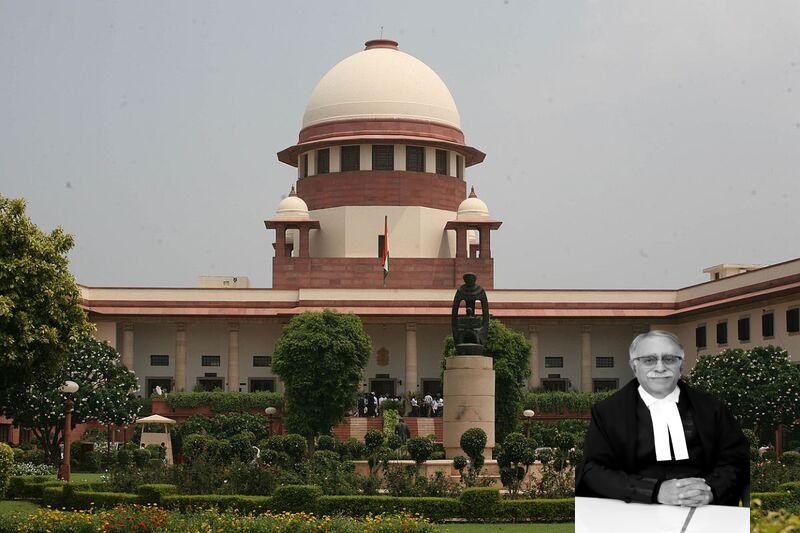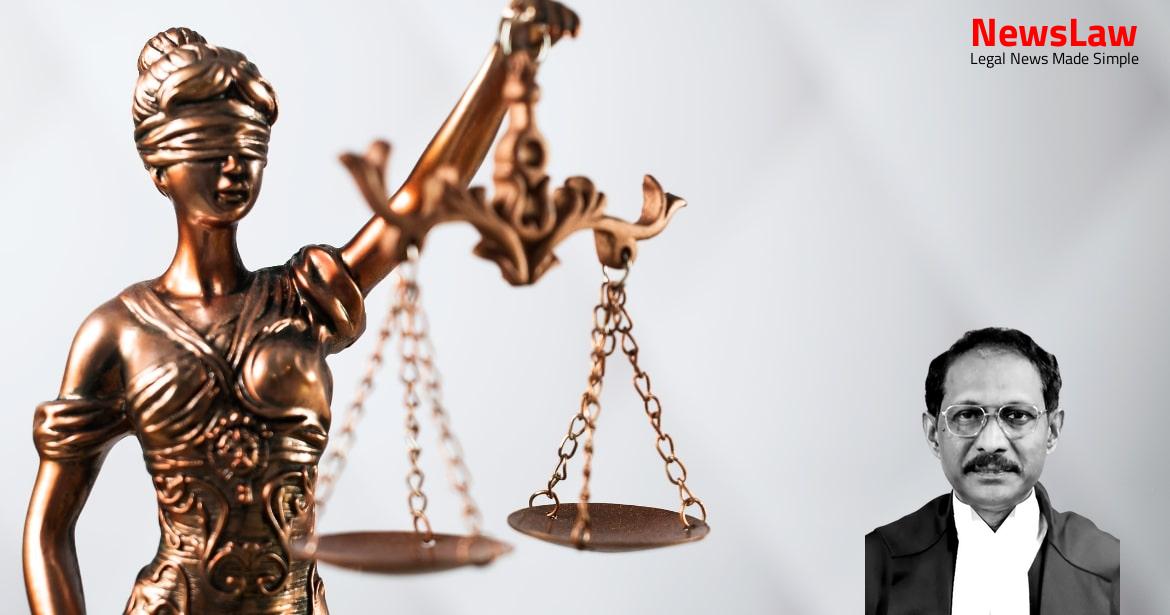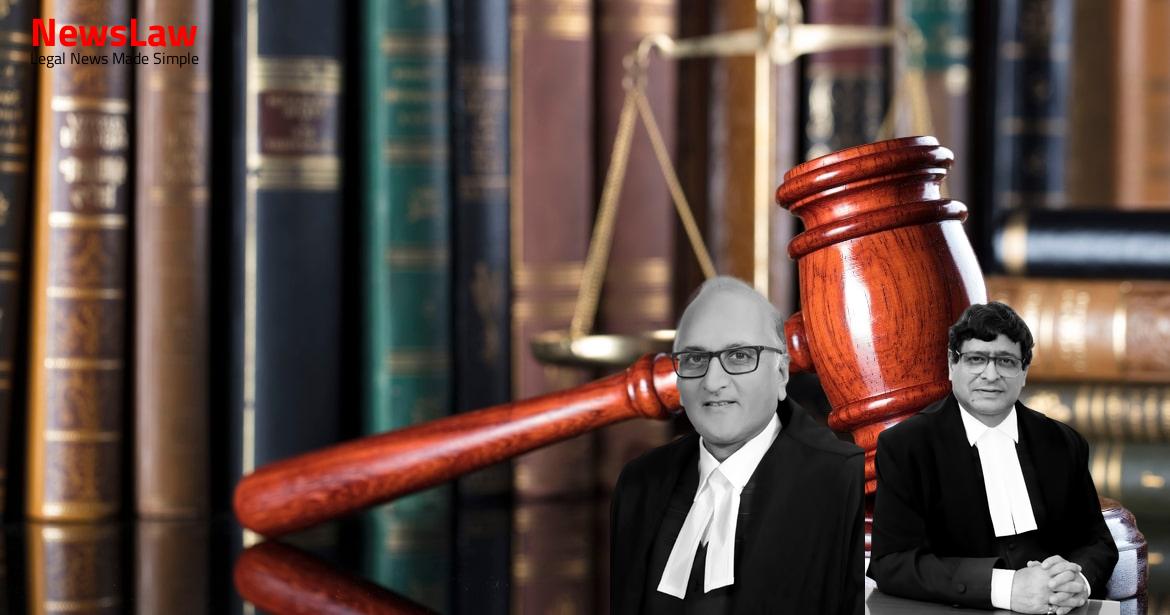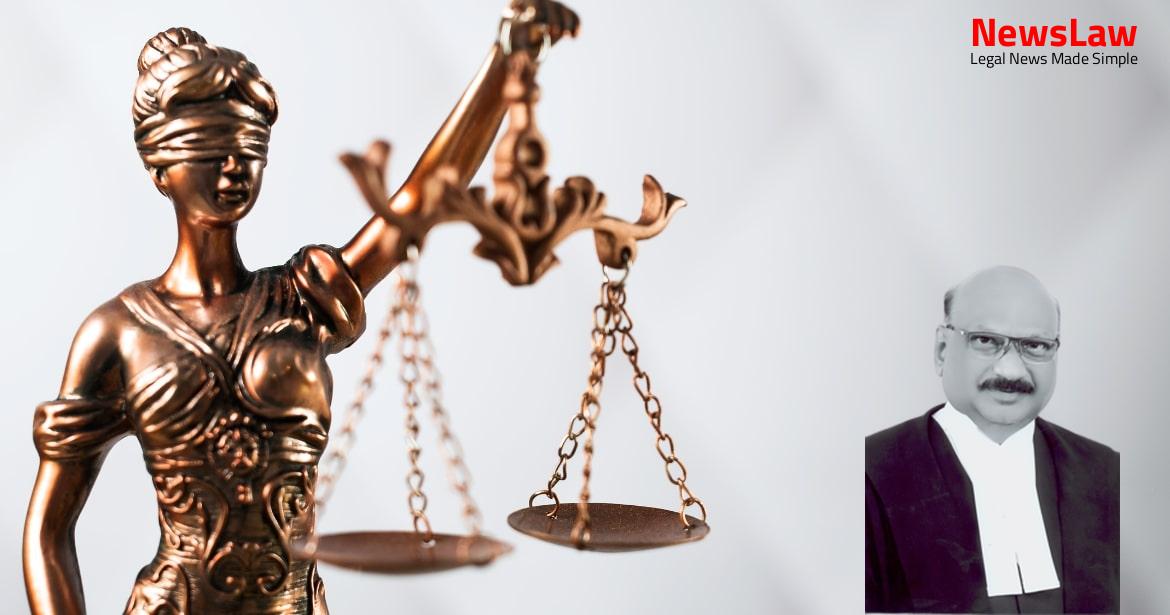The following questions arise for consideration of this Court: Whether in the absence of affording adequate opportunity of hearing to the parties on addressing the framed substantial questions of law, the High Court could have proceeded to decide the same in an appeal preferred under section 100 Code of Civil Procedure (hereinafter “CPC”), particularly, when the findings of fact rendered by two Courts, were sought to be reversed? Hence, this appeal by special leave, seeks to assail a judgement and order dated 30 September 2022 passed in Second Appeal No.324/2021 by the High Court of Judicature at Bombay (Nagpur Bench) whereby concurrent findings returned by the Courts below vide judgement dated 3 September, 2014 by the Civil Judge Senior Division, Gadchiroli and vide judgement dated 1 October, 2021 by the Principal District Judge, Gadchiroli, were overturned. 1 has entered into an agreement of sale suit land Survey No 236/2 area 1.19 HR of Navegaon in favor of plaintiff for consideration of Rs.6,60,00/-? YES PW-1 Suresh and PW-2 Sudhakar have deposed that an agreement was entered into in respect of the land and their testimonies remain unshaken. 2A Whether the plaintiff proves that he paid Rs.1,00,000 on 17.01.2005, another Rs.1,00,000/- on NO No document is placed on record to show wherefrom the said amounts were withdrawn, nor was the same paid in the presence of any 07.05.2005, Rs.2,000/- on 12.06.2008 and Rs.8,000/- on 12.06.2008 to defendant no. YES Suresh’s (PW 1) testimony that after receiving requisite permission from the authority the plaintiff had asked the defendant to execute the deed by way of serving notice and also the fact that he has placed on record cheque for Rs.3,90,000/-, leads to the conclusion that he has always been ready and willing to perform his part of the contract. In the Second Appeal, the Court framed four questions, substantial in nature, and held that the concurrent findings as returned by the trial courts were based on “complete misapplication of law” and “erroneous consideration” and appreciation of the evidence led by the parties. It has been urged before us, amongst other grounds, that the judgement of the High Court is contrary to the law settled by various judgments of this court as the substantial questions were framed on the second date of hearing thereby contravening the provisions of Section 100 CPC; the High Court ought not ordinarily reverse findings of fact, more so concurrent, returned by the trial court until and unless findings returned are perverse, which clearly was not the case; on the aspect of readiness and willingness, reliance was placed on Sukhbir Singh v. 13.1 The requirement, most fundamental under this section is the presence and framing of a “substantial question of law”. 13.2 The jurisdiction under this section has been described by this Court in Gurdev Kaur v. The effect of the amendment mainly, according to the amended section, was: (i) The High Court would be justified in admitting the second appeal only when a substantial question of law is involved; (ii) The substantial question of law to precisely state such question; (iii) A duty has been cast on the High Court to formulate substantial question of law before hearing the appeal; (iv) Another part of the section is that the appeal shall be heard only on that question.” Gurdev Kaur (supra) was referred to and relied upon in Randhir Kaur v.
14.1 If the Court is of the view that a question framed is to be altered, deleted or a new question is to be added, then the Court must hear the parties. 14.3 When the case is admitted, but upon hearing when it is found that no substantial question of law arises for consideration, reasons should be recorded in such dismissal. Umesh Chandra Goswami [(1997) 4 SCC 713] (SCC paras 8 and 9); and Kshitish Chandra Purkait v. Although the Court has the requisite jurisdiction to formulate a substantial question of law at a subsequent stage which was not formulated at the time of admission of the second appeal but the requirements laid down in the proviso appended to Section 100 of the Code of Civil Procedure were required to be met.” 16.1 This Court in Mehboob-Ur-Rehman v. Ahsanul Ghani, observed in respect of application of Section 100(5) CPC as under : – It is not rule under proviso to sub-section (5) to hear any other substantial question of law irrespective of the question(s) formulated, so as to annul other requirements of S. 16.3 Wrong application of law laid down by the Privy Council, Federal Court or the Supreme Court, will not qualify for substantial question of law and neither wrong application of facts. If the question of law termed as a substantial question stands already decided by a larger Bench of the High Court concerned or by the Privy Council or by the Federal Court or by the Supreme Court, its merely wrong application on the facts of the case would not be termed to be a substantial question of law. The mere appreciation of the facts, the documentary evidence or the meaning of entries and the contents of the document cannot be held to be raising a substantial question of law…” 16.5 Interference on findings of fact permitted in exceptional cases, i.e., when finding is based on either inadmissible or, no evidence.
… The High Court, it is well settled, while exercising jurisdiction under Section 100 CPC, cannot reverse the findings of the lower appellate court on facts merely on the ground that on the facts found by the lower appellate court another view was possible.” This position was reiterated by Avtar Singh & Ors.



